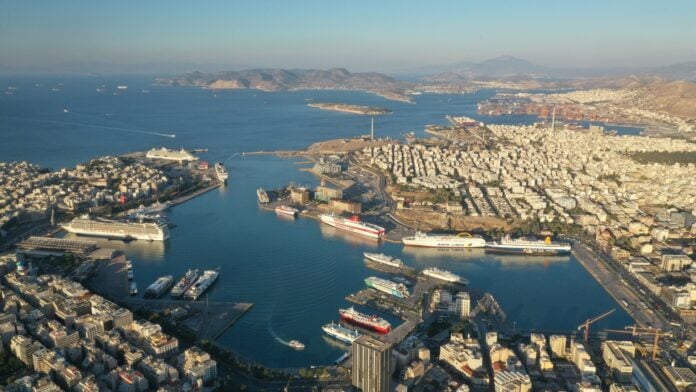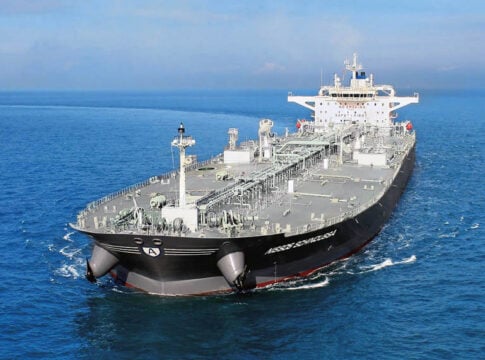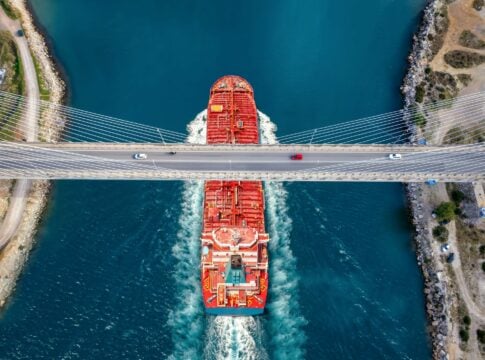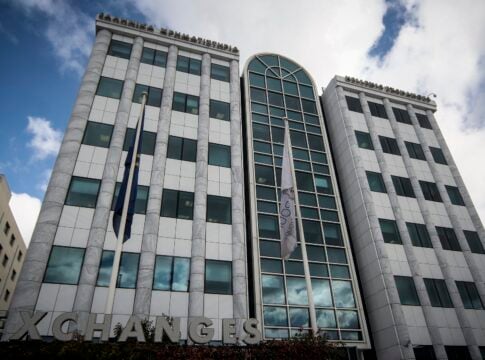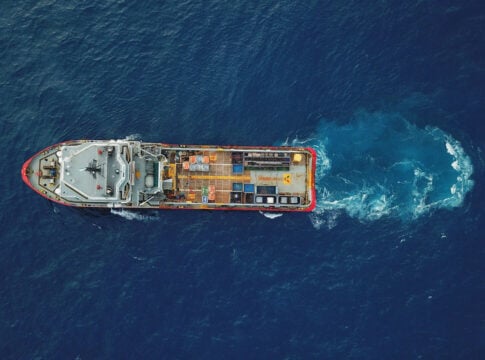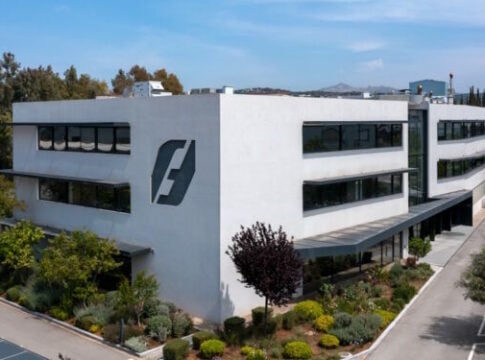Greece maintains its leading position on the global shipping map, with the Athens-Piraeus region occupying 8th place among 43 top shipping centers.
According to the new Xinhua-Baltic International Shipping Centers Development Index (ISCDI) report for 2025, the wider Attica region hosts over 1,000 shipping offices, making it one of the most important hubs for ship ownership, technical management and shipping services internationally.
Despite falling one place compared to 7th in 2024, the Athens-Piraeus region maintains its momentum as one of the most stable and strategically aligned shipping centers, strengthening Greece’s overall footprint as a global shipping superpower.
This ranking reflects the historical strength of the Greek shipping community and the growing importance of the port of Piraeus in the international supply chain and maritime trade.
The ISCDI index evaluates shipping centers based on cargo movement, port infrastructure, maritime services (legal, financial, shipping brokerage), as well as the general business environment.
Greece’s continued presence in the top ten of the ranking is proof of the competitiveness, experience and know-how of the Greek shipping industry, at a time when global shipping is facing intense challenges.
First place in the global ranking of shipping centers is occupied by Singapore, second place by London and third by Shanghai, followed by Hong Kong, Dubai, Rotterdam, Ningbo Zhoushan and Athens-Piraeus.
In 2024, Singapore, which ranked first in the world, recorded container traffic of 41.12 million twenty-foot equivalent units (TEU), a new high, while ship arrival capacity exceeded 3 billion gross tons.
It also handled 54.92 million tons of marine fuel, confirming its position as the world’s largest bunkering hub.
More than 200 international shipping groups and numerous maritime technology start-ups and education hubs are located there.
The port of Rotterdam firmly maintained its position as the largest shipping gateway in continental Europe for 2024, occupying sixth place in the global ranking for another year.
The port’s performance in a challenging economic and geopolitical environment has highlighted its strategic importance for European trade, confirming its role as a key hub for the transport of goods and energy.
At the same time, Rotterdam has made substantial progress in modernizing its infrastructure, moving towards digitalization and automation of processes, and decarbonizing through innovative green energy projects and sustainable fuels.
The total throughput of the Port of Rotterdam decreased slightly to 435.8 million tonnes, from 438.8 million tonnes in 2023.
Container volume remained stable at 13.8 million TEUs, with container cargo representing 133.4 million tonnes of total volume.
The port’s financial performance was equally strong, with revenue increasing by 4.8% to 882.0 million euros and net profit reaching 273.7 million euros, an increase of 40.2 million compared to the previous year.
The results demonstrated both commercial resilience and prudent financial management, no small feat given the global economic climate.
Port of Piraeus
Despite international pressure on supply chains and cargo handling, the Port of Piraeus remained on a growth trajectory in 2024, recording strong performances in the cruise, coastal shipping and vehicle handling sectors.
The total revenue of the Piraeus Port Authority (PPA) for 2024 amounted to 230.9 million euros, recording a 5% increase compared to 219.8 million euros in 2023.
Net profits after taxes jumped by 30.9%, reaching 87.5 million euros, compared to 66.8 million euros the previous year.
Although total container handling fell, reaching 4.79 million TEUs from 5.10 million TEUs in 2023, Pier I, directly managed by the PPA, recorded a 9% increase, with 563,725 TEUs.
Leading role
The dominance of Greek shipping is mainly based on the tanker and bulk carrier fleets.
Specifically, Greeks control 30% of the global tanker fleet, 25% of bulk carriers, 23% of LNG carriers, 15% of chemical/product carriers, 13% of LPG carriers and 8% of containerships.
The Greek shipping community is constantly strengthening its international presence, while Athens is evolving into an innovation hub, hosting technological start-ups that develop cutting-edge solutions in collaboration with shipowners.
These companies are expanding their global reach, expanding into Asia and exporting know-how throughout the shipping world.


